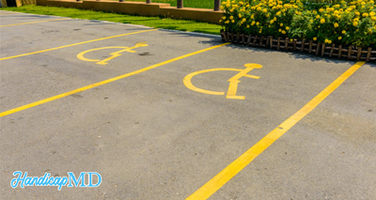
Handicap Parking Laws in Pennsylvania
If you or a loved one has a disability, you know how important it is to have easy access to parking. In Pennsylvania, the law provides certain privileges for individuals with disabilities to make parking more accessible. However, not everyone is aware of the laws surrounding accessible parking. This article will provide a comprehensive guide to the handicap parking laws in Pennsylvania.
Introduction
Having a disability can be challenging, but the law provides certain privileges to make daily life easier. One such privilege is accessible parking. Accessible parking is reserved for individuals with disabilities to make parking more accessible. In Pennsylvania, the law provides certain benefits to individuals with disabilities, but not everyone is aware of them. This article aims to provide a comprehensive guide to accessible laws in Pennsylvania.
Benefits of Handicap Parking
Accessible parking provides a lot of benefits to individuals with disabilities. Some of the benefits are:
Easy access to buildings: accessible parking spots are usually located close to the entrance of a building, making it easier for individuals with disabilities to enter and exit.
More space: accessible parking spots are usually wider than regular parking spots, providing more space for individuals with disabilities to get in and out of their vehicle.
Reduced distance: accessible parking spots are usually located closer to the entrance of the building, reducing the distance individuals with disabilities have to travel to get to their destination.
Longer time: Individuals with disabilities are usually allowed to park in haaccessible dicap parking spots for longer periods than regular parking spots.

Handicap Parking Laws in Pennsylvania
Pennsylvania has specific laws regarding accessible parking. Some of the laws are:
Accessible parking spaces must be clearly marked with the International Symbol of Access.
Individuals with disabilities must have a valid disability placard or license plate to park in accessible parking spaces.
Disability placards or license plates are issued by the Pennsylvania Department of Transportation (PennDOT).
It is illegal to park in a accessible parking space without a valid disability placard or license plate. Violators are subject to fines.
Handicap parking spaces cannot be used for general parking unless all other parking spaces are occupied.
It is illegal to obstruct a accessible parking space with any object.
Who is Eligible for Handicap Parking in Pennsylvania?
Not everyone with a disability is eligible for handicap parking in Pennsylvania. Individuals who are eligible for accessible parking must meet one or more of the following criteria:
Cannot walk 200 feet without stopping to rest.
Cannot walk without the assistance of a device such as a wheelchair, crutches, or a walker.
Have a cardiac, respiratory, or other condition that limits their mobility.
Have a visual impairment that severely limits their mobility.
Are legally blind.
How to Apply for a Disability Placard or License Plate in Pennsylvania?
To apply for a disability placard or license plate in Pennsylvania, follow these steps:
Download and complete Form MV-145A from the PennDOT website.
Have a licensed physician, physician's assistant, or nurse practitioner complete the medical certification section of the form.
Submit the completed form to the address listed on the form.
Allow 10-15 business days for processing.
FAQS about accessible Parking in Pennsylvania
Q1. What is the penalty for parking in a haaccessible dicap space without a valid disability placard or license plate?
A1. The penalty for parking in a accessible space without a valid disability placard or license plate is a fine of up to $300.
A2. Can I get a temporary disability get a disability placard or license plate in Pennsylvania?
Yes, individuals with temporary disabilities can also apply for a disability placard or license plate in Pennsylvania. The placard or plate will be issued for the duration of the temporary disability.
Q3. Can a disability placard or license plate be used in other states?
A3. Yes, disability placards and license plates issued in Pennsylvania are recognized in all 50 states.
Q4. Can a non-disabled person use a disability placard or license plate to park in a accessible space?
A4. No, it is illegal for a non-disabled person to use a disability placard or license plate to park in a accessible space. Violators are subject to fines and possible criminal charges.
Q5. Can a business or private property owner reserve a accessible parking space?
A5. No, only state or local government agencies can reserve accessible parking spaces. However, private property owners can request that local law enforcement enforce accessible parking regulations on their property.
Q6. Can an individual be denied a disability placard or license plate?
A6. Yes, individuals who do not meet the eligibility criteria for disability placards or license plates can be denied. Additionally, individuals who have had their license suspended or revoked may not be eligible.
Conclusion
Accessible parking provides a lot of benefits to individuals with disabilities. However, it is important to follow the laws surrounding accessible parking to ensure that the spaces are available for those who need them. If you or a loved one is eligible for a disability placard or license plate, be sure to apply for one to make parking more accessible.
We hope that this comprehensive guide to handicap parking laws in Pennsylvania has been helpful. Remember to always respect accessible parking spaces and follow the laws to ensure that they are available for those who need them.
.png)





